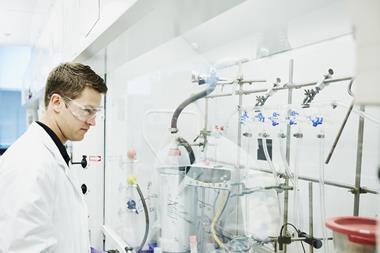Funding for research and innovation will rise from £20.4 billion in 2025–2026 to £22.6 billion per year by the end of 2029–2030, in support of the forthcoming industrial strategy, the UK government has announced in its spending review.
It said that the £86 billion boost over the next four years would fund new drug treatments, longer-lasting batteries and new breakthroughs in artificial intelligence.

The spending review lays out the government’s plans to invest in its priority areas – security, health and the economy – setting departmental budgets through to 2028–29 and capital investment plans to 2029–30.
‘Britain is the home of science and technology,’ said chancellor of the exchequer, Rachel Reeves. ‘Through the plan for change, we are investing in Britain’s renewal to create jobs, protect our security against foreign threats and make working families better off.’
During her speech on 11 June 2025, Reeves mentioned the long-awaited industrial strategy, which has been pushed back to the end of the month. ‘There will be more to come in the weeks ahead in our 10-year infrastructure strategy and in our modern industrial strategy too, a plan, drawn up in partnership with businesses and trade unions,’ she said.
As well as the funding boost for R&D, the review placed significant emphasis on low-carbon energy infrastructure and energy security with major investments including £14.2 billion to build the Sizewell C nuclear plant, £2.5 billion to enable one of Europe’s first small modular reactor programmes and £2.5 billion for nuclear fusion technology. Carbon capture and storage also received a boost, with £9.4 billion allocated to support projects such as Acorn in Aberdeenshire and Viking on Humberside. The Advanced Research and Invention agency, the blue skies research funder, will get at least £1 billion over the next parliament.
In its submission to the Treasury back in February, the Royal Society of Chemistry (RSC) called on the UK government to consider the future of science education and invest in a sustainable chemicals and materials sector. In its response to the spending review, the RSC said that, although ‘broadly flat cash in real terms’, the funding announcement was ‘welcome news in current circumstances’.
‘Long-term investment in R&D in the chemical sciences should create good jobs in all nations and regions, ensuring that the UK is equipped to meet challenges such as mitigating and adapting to climate change, becoming a clean energy superpower, improving human health and tackling other emerging global challenges like improving the UK’s food and energy security.’
It also said that it welcomed the government’s assurance that the priorities of the upcoming industrial strategy were ‘already embedded’ in this spending review. ‘As we have highlighted to the government before, the chemical sciences are woven through the UK economy … The UK chemistry community is therefore well-positioned to provide vital insights and data on the interplay between sectors and their foundations as the industrial strategy is implemented.’
However, the RSC highlighted that a ‘significant threat’ to chemistry’s potential to drive economic growth was the ongoing financial uncertainty for universities across the UK and that the government needed to ‘act now and act decisively’ to ‘avoid missing the opportunity’.
It also said that to ensure we ‘maximise’ the economic and societal benefit the chemical sciences bring there needed to be a shift from thinking about chemistry laboratories as ‘fixed infrastructure’. ‘A decentralised approach allows tailoring of lab ecosystems to align with regional innovation clusters, local universities, industrial strengths, as well as local priorities, planning and decision making.’
Alicia Greated, executive director of the Campaign for Science and Engineering (CaSE), said the chancellor’s speech brought ‘welcome confirmation’ that the UK R&D budget was being protected in ‘tough fiscal circumstances’. ‘Supporting UK R&D is an essential way to generate growth in the economy, ensure excellence in UK universities and research institutes, stimulate private sector innovation and improve lives and livelihoods across the UK,’ she said.
‘It is important that we now consider the full detail of the spending review publications, as well as, critically, future departmental allocations. CaSE will be working to analyse the plans and assess the impact they will have on the R&D sector, particularly as there are several promising new initiatives that will need accounting for alongside existing commitments.’
Steve Bates, chief executive of the UK BioIndustry Association, said the chancellor’s investments in R&D was a ‘huge vote of confidence’ in the sector’s ability to drive economic growth.
‘We await the industrial strategy and life sciences sector plan later this month to see the full details of how the spending plans announced today will be delivered in reality, and look forward to working in partnership with government to make every penny count for Britain’s economy, people and patients,’ he added.

















No comments yet